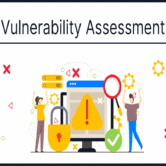
Establish the need for regular vulnerability assessments in app maintenance routines.
Introduction
In the dynamic landscape of digital applications, maintaining robust security is paramount. Regular vulnerability assessments are a vital component of app maintenance routines, particularly in India where businesses increasingly operate within regulated, data-sensitive, and user-driven environments. With cyber threats evolving in sophistication, app vulnerabilities can lead to data breaches, service outages, reputational loss, and regulatory penalties. Indian IT firms and enterprises integrate vulnerability assessments into their maintenance workflows to proactively identify, manage, and mitigate security risks.
Detection of Security Weaknesses
Regular vulnerability assessments help identify flaws in application code, configuration, third-party dependencies, and infrastructure. These assessments detect loopholes that could be exploited by attackers, including outdated libraries, misconfigured firewalls, open ports, and unsecured APIs. Early detection enables Indian IT teams to address these issues before they are exploited in real-world scenarios.
Prevention of Data Breaches
Applications in sectors such as finance, healthcare, and e-commerce handle large volumes of sensitive personal and financial data. Vulnerability assessments play a key role in preventing data leaks by identifying points of unauthorized access or weak encryption. Indian enterprises use these assessments to align with data protection frameworks such as the Digital Personal Data Protection Act and global standards like GDPR or PCI DSS.
Support for Compliance and Audits
Many Indian businesses must comply with industry-specific regulations that mandate regular security audits and risk assessments. Scheduled vulnerability assessments generate reports and remediation records that help demonstrate compliance during audits. This not only satisfies legal requirements but also enhances organizational credibility with customers and partners.
Minimizing Business Disruption and Downtime
Unaddressed vulnerabilities can lead to cyberattacks that disrupt operations and cause prolonged application downtime. Through routine assessments, Indian IT firms can detect and patch vulnerabilities before they escalate into incidents. This preventive approach ensures application availability and minimizes business disruptions, particularly for mission-critical systems.
Enhancing Trust and User Confidence
In a market where digital trust plays a significant role in user retention, maintaining a secure app ecosystem is essential. Regular vulnerability assessments demonstrate a commitment to user safety and privacy. By securing applications against cyber threats, Indian businesses build trust with their users, which contributes to long-term loyalty and brand reputation.
Facilitating Rapid Response and Patch Management
Vulnerability assessments enable IT teams to maintain an up-to-date inventory of security risks and prioritize them based on severity. This structured insight supports efficient patch management, allowing developers to focus on high-risk vulnerabilities with immediate action plans. In Indian maintenance environments, this helps streamline response efforts and align development and security operations.
Cost-Effective Risk Mitigation
Addressing vulnerabilities during routine maintenance is significantly more cost-effective than dealing with the aftermath of a breach. Remediation of security incidents involves not only technical fixes but also legal costs, customer compensation, and reputation management. Indian enterprises recognize that regular assessments reduce overall risk exposure and financial liabilities in the long run.
Integration with DevSecOps Practices
Indian IT firms increasingly follow DevSecOps models that integrate security assessments into continuous development and deployment cycles. Regular vulnerability scans ensure that security is embedded from the early stages of application changes. This practice reduces security debt and enhances the overall quality and reliability of software delivered through maintenance updates.
Conclusion
Regular vulnerability assessments are essential to the sustainability and security of applications in Indian enterprise environments. They support early detection of threats, ensure compliance, safeguard user data, and maintain operational continuity. By embedding these assessments into app maintenance routines, Indian IT service providers and businesses create a resilient digital infrastructure that can withstand evolving cyber challenges while delivering consistent and secure user experiences.
Hashtags
#VulnerabilityAssessment #AppSecurity #CyberSecurity #RiskManagement #SoftwareMaintenance #SecurityBestPractices #RegularAssessments #AppDevelopment #DataProtection #ThreatDetection #SecurityAwareness #TechSafety #VulnerabilityManagement #SecureCoding #ApplicationSecurity #ITSecurity #SecurityUpdates #Compliance #DigitalSafety #ProactiveSecurity





